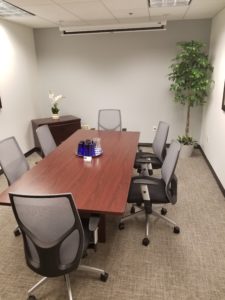 As published in Massachusetts Lawyers Weekly
As published in Massachusetts Lawyers Weekly
The COVID-19 virus is affecting us all both personally and professionally. As of this writing, courts and many borders are closed, travel has been severely restricted, and even physical contact with one another is being discouraged (i.e., social distancing). All attorneys are now challenged with how to best represent their clients in this rapidly-evolving environment.
Dispute Resolution [DR] professionals must now coordinate all of our communication and technical options to continue to deliver the best possible support to the legal community and other clients. Though Online Dispute Resolution [ODR] has not typically been the most preferred method of solution delivery, the current state of crisis simply demands it.
Our own Massachusetts DR pioneer, Professor Frank E. A. Sander, prophetically published in 1994 a ground breaking article calling DR Fitting The Forum to the Fuss. Twenty-six years later this goal remains the same: we must continue to ask ourselves how the DR Industry can Fit The Forum to the Fuss in response to the global pandemic crisis.
In reality and for some time now, DR processes cannot be viewed as simply scheduled face-to- face physical encounters. Rather, from beginning to end, DR providers have been employing a variety of communications utilizing telephone, email, online tools, and in most cases still traditionally involving face-to-face sessions, where all parties with needed settlement authority and interest participate in person.
Most DR professionals will likely agree that face-to-face physical presence of all interested parties at a mediation session, for example, remains the preferred choice in resolving disputes. The complex dynamics and emotions of participants and the full range of neutrals’ interpersonal skills are perhaps best realized when the parties can reach out and touch each other.
However, DR’s historic reliance on physical meetings has been steadily eroding as ever improving online options, such as video conferencing, have become more efficient and user friendly. Many of us have become familiar with and enjoy using programs like Skype and FaceTime in our personal lives. Growing numbers of legal professionals are seeing the advantages of using advanced video conferencing services such as Zoom or GoToMeeting when a face-to-face meeting is either not possible or not preferred.
COVID-19 has not only nearly paralyzed the court system, but their ordinary backlog will continue to grow significantly with mandated closings. Many businesses, insurance claims handlers, lawyers, and individuals must currently and for the foreseeable future restrict their travel. Now more than ever it is the DR community that offers a forum to meet these challenges, employing the full array of technological advances, including [but not limited to] video conferencing to resolve disputes where all of the parties may not be able to meet face-to- face.
The cutting-edge technology of today’s video conferencing affords all parties the opportunity to fully participate with ease of use from offices, homes, or virtually anywhere – simply with phone in hand. Participants need not go to great costs to participate by video conference. All that is needed is a desktop, laptop, iPad, or cell phone that has a working camera and microphone. If devices don’t have a camera, inexpensive clip-ons that plug into the USB port can be purchased inexpensively online or at retailers. You might ask your DR provider for a trial run using videoconferencing before scheduling your next case.
Innovative DR providers have the facilities and technology to create sessions where some or even all of the participants cannot attend in person. Software applications such as Zoom, GoToMeeting, and others are tailored and administered by the DR provider to seamlessly fit the more traditional processes we all know, such as the joint meeting and private caucuses in mediation. Technology now allows the mediator to conduct advanced shuttle diplomacy, choosing who they speak to in private and when, even when participants are only doing so online.
While it is the COVID-19 virus bringing video conferencing to the fore for so many, incorporating video conferencing in the DR process has significant recognized advantages.
Cost savings has always been a key benefit of DR processes, and incorporating ODR technologies eliminates travel expenses, allows for quicker communications, and also provides more flexibility in scheduling. Documents can be easily shared during online sessions, and secure and encrypted document signing can be accomplished, critical, for example, to the all- important execution of a Mediation Settlement Agreement.
Quite frankly friends, these solutions will keep people in business.
So….please stay safe in these difficult times and look to DR as you Fit the Forum to Your Case.
Brian R. Jerome, Esq.
Founder and CEO
Massachusetts Dispute Resolution Services
Boston and Salem, Massachusetts
